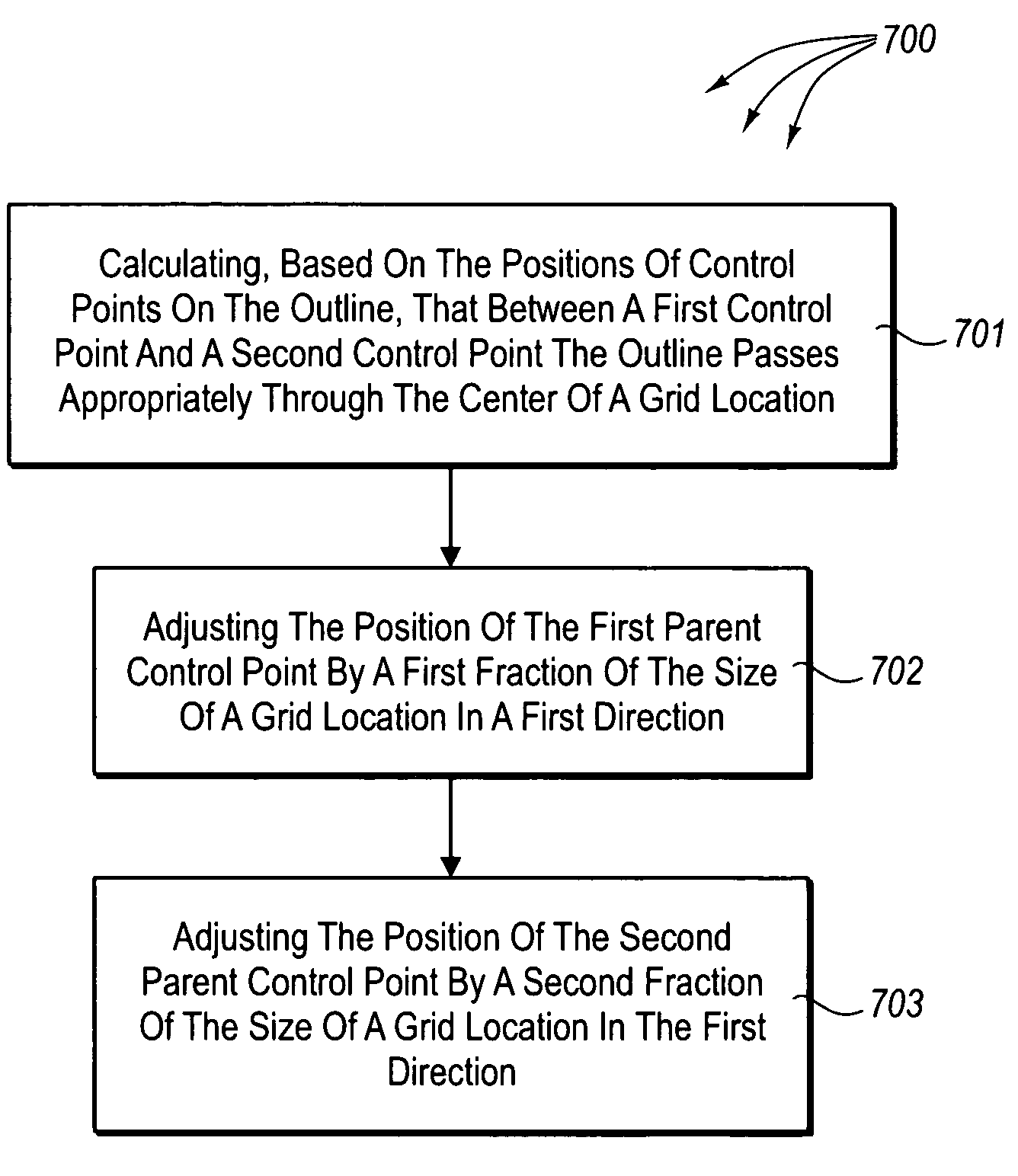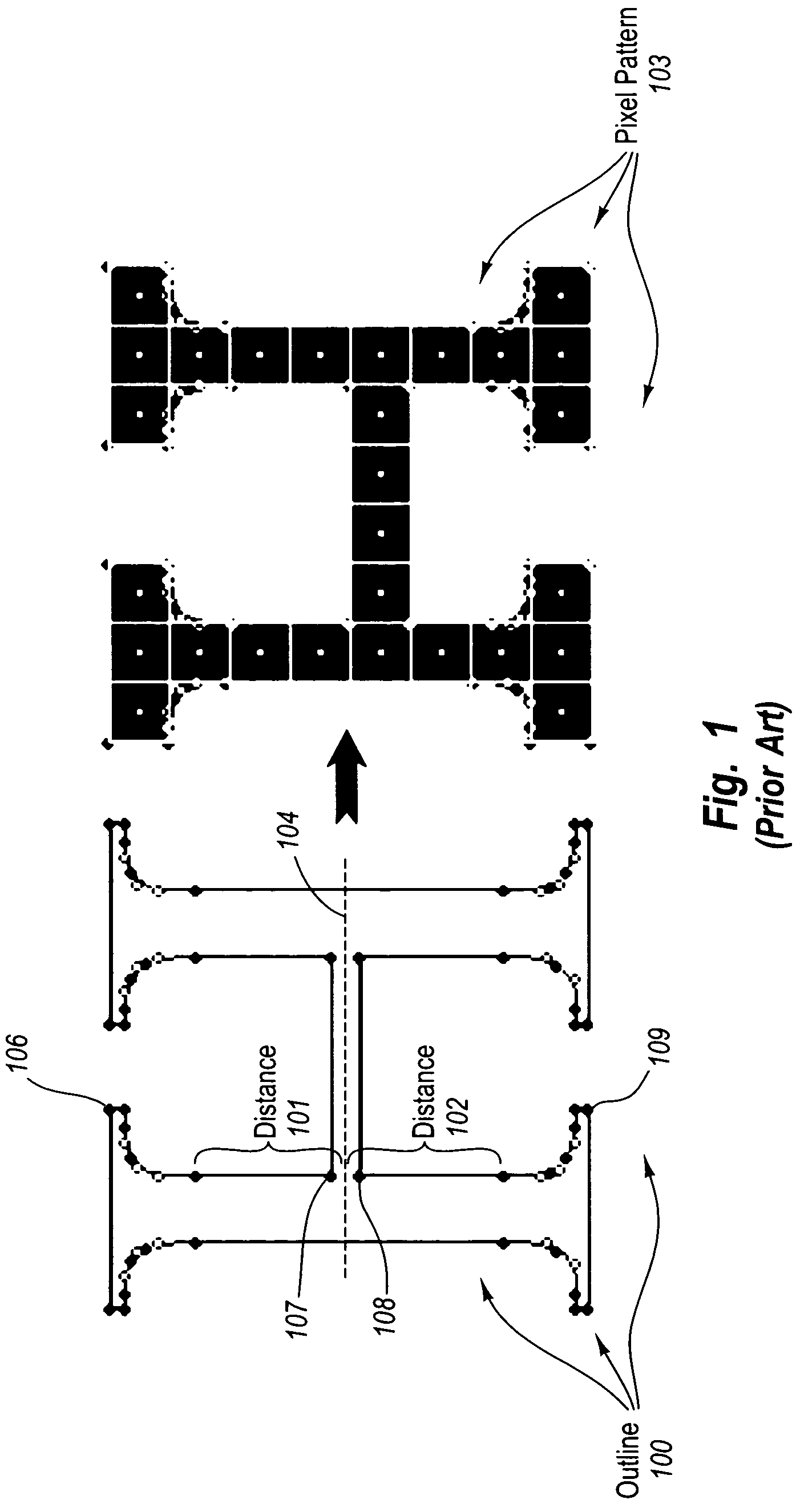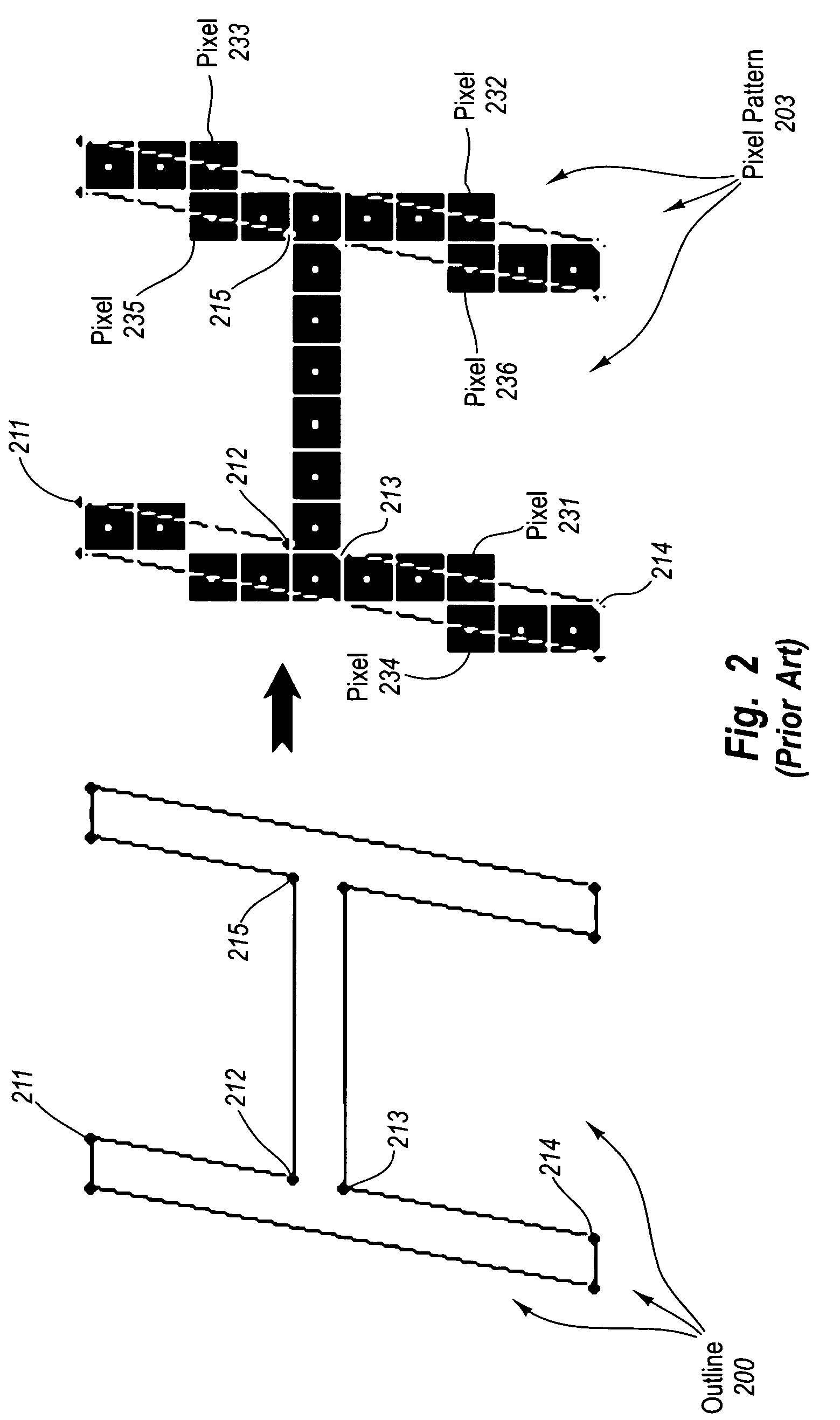Appropriately rendering a graphical object when a corresponding outline has excessive control points
a control point and corresponding outline technology, applied in the field of appropriate rendering of graphical objects, can solve the problems of affecting the character representation of the conversion, the effect of rounding errors in the scaling down process, and the conversion of characters that are unacceptable,
- Summary
- Abstract
- Description
- Claims
- Application Information
AI Technical Summary
Benefits of technology
Problems solved by technology
Method used
Image
Examples
Embodiment Construction
[0038]The principles of the present invention relate to systems, methods, and computer program products for appropriately rendering a graphical object when a corresponding outline has excessive control points. A computer system calculates the target width for a feature of the graphical object. The computer system calculates the position of a center line corresponding to the feature. The computer system rounds the calculated position of the center line to a grid position based on the calculated target width for the feature. The computer system adjusts the position of one or more control points of the feature to comply with the grid position of the center line.
[0039]Embodiments within the scope of the present invention include computer-readable media for carrying or having computer-executable instructions or data structures stored thereon. Such computer-readable media may be any available media, which is accessible by a general-purpose or special-purpose computing system. By way of ex...
PUM
 Login to View More
Login to View More Abstract
Description
Claims
Application Information
 Login to View More
Login to View More - R&D
- Intellectual Property
- Life Sciences
- Materials
- Tech Scout
- Unparalleled Data Quality
- Higher Quality Content
- 60% Fewer Hallucinations
Browse by: Latest US Patents, China's latest patents, Technical Efficacy Thesaurus, Application Domain, Technology Topic, Popular Technical Reports.
© 2025 PatSnap. All rights reserved.Legal|Privacy policy|Modern Slavery Act Transparency Statement|Sitemap|About US| Contact US: help@patsnap.com



